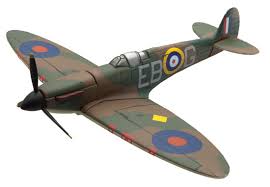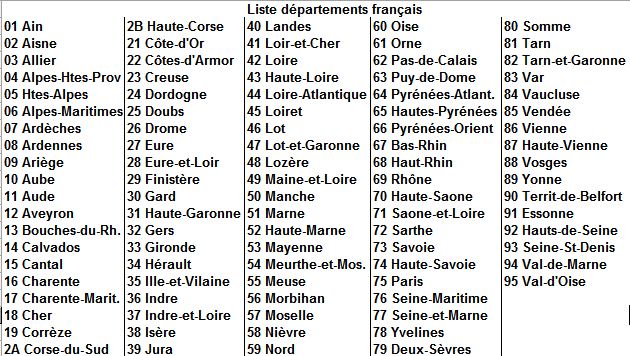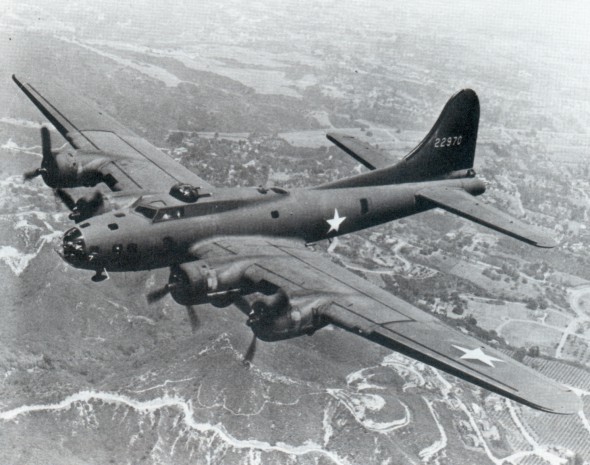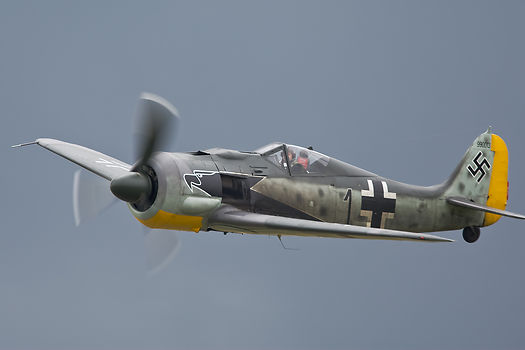
|
Crash - Spitfire - Mk.IX - s/n BS276 MD°? |

|

|
Crash - Spitfire - Mk.IX - s/n BS276 MD°? |

|
| Fiche France-Crashes 39-45 modifiée le 17-02-2025 | |||||
| Date | Nation |
 Département Département |
Unité | - | Mission |
|---|---|---|---|---|---|
| 06-09-1942 | Angleterre/Common. | Somme | 133 Sq Eagle |
Circus 215/2 - Escorte de 51  B-17 Flying Fortress - Photo du site Sebastien Lebacq (worldWar2)B-17 Flying Fortress |
|
| Localisation | NE d'Aumale (76) |
|---|---|
| Circonstances |
Abattu par un chasseur  Focke Wulf 190 - Photo du site www.pixstel.comFw190 - Avion évacué en parachute à 20000 pieds - Pilote attaqué par le chasseur pendant sa descente en parachute vers 18h00 |
| Commentaires | Décollage 17h00 de Biggin Hill, Kent UK - Il est possible que le crash ait eu lieu dans la Seine-Maritime |
| Sources ** |
Jean-Luc Maillet (sources : www.airhistory.org.uk / Listes des chasseurs et équipages perdus: Royal Air Force - Fighter Command Losses of the Second World War par Norman LR Franks NLR Franks / www.fourthfightergroup.com / www.conscript-heroes.com) / Keith MacRae (source: National Archives UK) |
| Historique | 19/09/2014=Création - 29/01/2016=Ajout rapport,circonst,local - 13/10/2018=Ajout résumé - 19/10/2018=Ajout lien - 17/02/2025=Ajout rapport |
| Grade | Prenom | Nom | Poste | Corps | Etat |
 Lieu d'Inhumation Lieu d'Inhumation |
Commentaires |
|---|---|---|---|---|---|---|---|
| F/O | Eric | Doorly | Pil | RAF VR | En fuite | 101458 - Né le 01/12/1920 - Long Island, New York USA (Volontaire américain d’Hawaï) – Evasion avec filière PAO par Pyrénées/Espagne/Gibraltar (passage par la prison de Miranda) - Retour UK 27/03/1943 - Rapport évasion Rapport WO 208/3312/1129 - Reprend le service au sein de l’USAAF au 371stFG/406thFS |
| Fiche tech | Correspondance grades | Abréviations utilisées | Filières d'évasion | Camps de Pow | Bases RAF/USAAF | Utilitaires |
|---|
|
Rapport F/O Doorly: - ( On 6 Sep 42 I was pilot of a Spitfire escorting "Flying Fortresses" to raid a target near Rouen. I left Biggin Hill at about 1700 hrs. On our way to the target at about 1745 hrs, I was attacked by an enemy fighter N.E. of Aumale, and had to bale out from 20,000 feet. As I descended, the fighter which had attacked me followed me to a very load level. I landed in a field, unhurt, but when I attempted to pick up my parachute made a dive at me. I left the parachute where it lay, and ran into the shelter of some trees. I did not see what happened to my aircraft after I baled out. I hid my Mae West under some bushes, and cut off my shoulder straps and "wings". I was wearing walking shoes and not flying boots. I then ran down the edge of a field towards a cottage. I cannot speak French, but two women came out of the cottage, and in a few words of English, one of them offered to help me. I thought it unwise to remain so near to my alighting point, and I went on a little further, and hid in some bushes. I stayed here until dark, and watched some German soldiers searching for me about 500 yards away. About 2030 hrs I set out across country, and walked until 0400 hrs on 7 Sep. I did not choose any particular route, my object being to get as far away as possible from where I had landed. About 0400 hrs I crawled into a barn, and slept till day-break. Then I saw a woman coming from a farmhouse nearby to milk a cow. I explained to her by signs what I was. She motioned me to come into her house, where I found her husband, daughter, and a Polish farm worker. None of them could speak any English. They gave me a fine breakfast of eggs, bread and butter, chocolate, and red wine. Later another man came who could speak German, which I can also speak. He told me the location of another house in the vicinity where there was a woman who could speak English. I then burned all my personal papers. I gave my helpers a £1 note and a U.S. 10 dollar bill. They provided me with a civilian coat, a woollen scarf, and a parcel of food. They also directed me to the English speaking woman's house, which was near Marlers. She lived with her father, who also spoke English. They gave me another civilian suit, and offered me money, which I did not take. They were very sympathetic, but were very frightened of the Germans, and would not keep me in their house. I then walked about 15 or 20 kilometres, and about 2230 hrs I entered the outskirts of a town which proved to be Aumale. I knew that the curfew hour was near, so when I met a French boy of about 19, I declared myself to him in English. Later I found that he was supposed to be an "auxiliary guard" employed by the German authorities. He could not speak English, but he understood the purport of my remarks. He did not ask me for any proofs of my identity, but he gave me to understand that if were playing him false, he would club me. Original) - ( PARTIE I - WO 208/3312/1129 - Source : Nat Arch UK - Traduction Ph Laroyenne): Le 6 septembre 1942, j'étais pilote d'un Spitfire escortant des "Forteresses volantes" pour attaquer une cible près de Rouen. J’avais décollé de Biggin Hill vers 17h00. En route vers la cible vers 17h45, j'ai été attaqué par un chasseur ennemi au nord-est d'Aumale et j'ai dû sauter en parachute à 20 000 pieds. Alors que je descendais, le chasseur qui m'avait attaqué m'a suivi jusqu'à une altitude très basse. J'ai atterri dans un champ, indemne, mais lorsque j'ai essayé de récupérer mon parachute, il a piqué sur moi. J'ai laissé le parachute là où il était et je me suis réfugié à l'abri de quelques arbres. Je n'ai pas vu ce qui est arrivé à mon avion après avoir sauté en parachute. J'ai caché ma Gilet de sauvetage gonflable (du nom de Mary 'Mae' West au buste généreux) Mae West sous des buissons et j'ai coupé mes épaulettes et mes "ailes". Je portais des chaussures de marche et non des bottes de vol. J’ai descendu ensuite en courant le long d'un champ en direction d'une maison. Je ne parle pas français mais deux femmes sont sorties de la maison et, après quelques mots d'anglais, l'une d'elles m’a proposé son aide. Je jugeai imprudent de rester si près de mon point de chute et j’ai continué un peu plus loin, me cachant dans des buissons. Je suis resté là jusqu'à la nuit et j’ai vu des soldats allemands qui me cherchaient à environ 500 mètres. Vers 20h30, je me suis mis en route à travers la campagne et j’ai marché jusqu'à 4h00 le 7 septembre. Je n'avais pas choisi d'itinéraire particulier, mon objectif étant de m'éloigner le plus possible de l'endroit où j'avais atterri. Vers 4h00, je me suis glissé dans une grange et j’ai dormi jusqu'au lever du jour. A un moment, j’ai vu une femme qui venait d'une ferme voisine pour traire une vache. Je lui ai expliqué par signes qui j'étais. Elle m'a fait signe d'entrer dans sa maison où j'ai trouvé son mari, sa fille et un ouvrier agricole polonais. Aucun d'entre eux ne parlait anglais. Ils m'ont donné un bon petit déjeuner composé d'œufs, de pain et de beurre, de chocolat et de vin rouge. Plus tard, un autre homme est venu qui parlait allemand, langue que je parle également. Il m'a indiqué l'emplacement d'une autre maison dans les environs où se trouvait une femme qui parlait anglais. J'ai ensuite brûlé tous mes papiers personnels. J'ai donné à mes assistants un billet de 1 £ et un billet de 10 dollars américains. Ils m'ont fourni un manteau civil, une écharpe en laine et un paquet de nourriture. Ils m'ont également indiqué la maison de la femme anglophone qui se trouvait près de Marlers [80]. Elle vivait avec son père, qui parlait également anglais. Ils m'ont donné un autre costume civil et m'ont proposé de l'argent, que je n'ai pas pris. Ils étaient très sympathiques mais avaient très peur des Allemands et ne voulaient pas me garder chez eux. J'ai ensuite marché environ 15 ou 20 kilomètres et, vers 22 h 30, j'ai atteint la périphérie d'une ville qui s'est avérée être Aumale [76]. Je savais que l'heure du couvre-feu approchait, alors quand j'ai rencontré un jeune Français d'environ 19 ans, je me suis présenté à lui en anglais. Plus tard, j'ai appris qu'il était censé être un « garde auxiliaire » employé par les autorités allemandes. Il ne parlait pas anglais mais il a compris le sens de mes propos. Il ne m'a pas demandé de preuves de mon identité mais il m'a laissé entendre que si je mentais, il me matraquerait. Rapport F/O Doorly: - ( He then took me to his home, where I met his mother and elder brother. They gave me supper and put me to bed. Next morning I showed them my American watch, cigarette lighter, and shoes, for I had no identity discs. This finally convinced them that I was genuine. I was able to make myself understood to them with the aid of a French-English dictionary. I stayed with this family for over a month. During this time I came to know that the two brothers were anxious to leave France. We therefore planned to travel together to Spain. My helpers arranged for me to be photographed, and procured a false identity card for me. About 12 Oct 42 I went by train with the two brothers to Paris. We then caught the evening train to Bordeaux, where we arrived early next morning. We went by train to a small station called Portees and thence walked to Langon, which was on the Line of Demarcation. Here my friends made enquiries, and found that the German patrols used dogs at night. We decided to cross the Line that day, and achieved this successfully, without meeting any sentries or police. We then caught a bus for Auch, where we spent the night in a hotel. Here I had to produce my identity card for inspection - the only occasion when I had to do this during the whole of my time in France. Next morning, 14 Oct 42, we went by train and bus to Lourdes. My companions had an uncle here, but when they asked for him they learned he had died three days before. We stayed for three weeks at a small boarding house in the town. While here we made contact with an organisation which arranged for my subsequent journey. My French companions did not come with me. On the afternoon of 14 Dec 42, with Sgt. Foster, R....F.)., and a Frenchman, I was arrested by some Spanish soldiers N. of the village of Esponia, (Gerona Province). They searched us, but insisted in escorting us back to a point near the French frontier, telling us that if we entered Spain in an orthodox manner, the Spanish authorities would give us passports to facilitate our journey. We slept in a barn in the mountain, and on 15 Dec made our way towards Rabos. Here we were arrested again, but this time our captors were Civil Guards. They took us to the police station at Rabos. Sgt. Foster had on him a poster, printed in France, and issued by the German authorities, offering a reward for his capture, and stating that he was an R.A.F. pilot. This satisfied the Spaniards that we were genuine Service evaders. On 17 Dec we were taken to Figueras, where we were searched by the police, and our money and Foster's poster were confiscated. We repeatedly asked to see the British Consul, but were told that he could not help us. A Spaniard who said he represented the Red Cross promised to tell the British Consul in Barcelona about us. Original) - ( PARTIE II - WO 208/3312/1129 - Source : Nat Arch UK - Traduction Ph Laroyenne): Il m'a ensuite emmené chez lui où j'ai rencontré sa mère et son frère aîné. Ils m'ont donné à dîner et m'ont offert un lit. Le lendemain matin, je leur ai montré ma montre américaine, mon briquet et mes chaussures, car je n'avais pas de plaque d'identité. Cela les a finalement convaincus de mon authenticité. J'ai pu me faire comprendre à eux à l'aide d'un dictionnaire français-anglais. Je suis resté avec cette famille pendant plus d'un mois. Pendant ce temps, j'ai appris que les deux frères étaient impatients de quitter la France. Nous avons donc décidé de partir ensemble en Espagne. Mes assistants ont fait en sorte que je sois photographié et m'ont procuré une fausse carte d'identité. Vers le 12 octobre 42, je suis allé en train avec les deux frères à Paris. Nous avons ensuite pris le train du soir pour Bordeaux [33] où nous sommes arrivés tôt le lendemain matin. Nous sommes allés en train jusqu'à une petite gare appelée Portets et de là, nous sommes allés à pied jusqu'à Langon qui se trouvait sur la ligne de démarcation. Là, mes amis ont fait des recherches et ont découvert que les patrouilles allemandes utilisaient des chiens la nuit. Nous avons décidé de traverser la ligne ce jour-là et nous y sommes parvenus avec succès, sans rencontrer de sentinelles ni de policiers. Nous avons ensuite pris un bus pour Auch [32] où nous avons passé la nuit dans un hôtel. Là, j'ai dû présenter ma carte d'identité pour contrôle - la seule occasion où j'ai dû le faire pendant tout mon séjour en France. Le lendemain matin, 14 octobre 42, nous sommes allés en train et en bus jusqu'à Lourdes [65]. Mes compagnons avaient un oncle ici mais quand ils ont demandé à le rencontré, ils ont appris qu'il était mort trois jours auparavant. Nous sommes restés trois semaines dans une petite pension de la ville. Pendant notre séjour, nous avons pris contact avec une organisation qui a organisé mon voyage ultérieur. Mes compagnons français ne m'ont pas accompagné. L'après-midi du 14 décembre 1942, avec le Sgt Foster, (R..F.), et un Français, j’ai été arrêté par des soldats espagnols au nord du village d'Esponia (province de Gérone). Ils nous ont fouillé et ont insisté pour nous reconduire jusqu'à un point proche de la frontière française, nous disant que si nous entrions en Espagne de manière orthodoxe, la France ne nous laisserait pas rentrer. Et les autorités espagnoles nous fourniraient des passeports pour faciliter notre voyage. Nous avons dormi dans une grange dans la montagne et, le 15 décembre, nous nous sommes dirigés vers Rabos. Là, nous avons été arrêtés à nouveau, mais cette fois il s’agissait des gardes civils. Ils nous ont emmenés au commissariat de police de Rabos. Le sergent Foster avait sur lui une affiche, imprimée en France et émise par les autorités allemandes, offrant une récompense pour sa capture et déclarant qu'il était un pilote de la RAF. Cela a convaincu les Espagnols que nous étions de véritables évadés. Le 17 décembre, nous avons été emmenés à Figueras où nous avons été fouillés par la police, et notre argent et l'affiche de Foster ont été confisqués. Nous avons essayé de demander à voir le consul britannique mais on nous a dit qu'il ne pouvait pas nous aider. Un Espagnol qui a dit représenter la Croix-Rouge a promis de parler de nous au consul britannique à Barcelone. Rapport F/O Doorly: - ( Later we persuaded a Frenchman to take a similar message. On 19 Dec, we were taken from police cells to Figueras prison. Here we found Bromwell and Frost. We remained in prison there, enduring the usual rigours of a Spanish prison, for 7 weeks. A representative of the British Consulate came to see us on 30 Jan 43. On 2 Feb my French companion was released. On 6 Feb Foster and I went by train to Barcelona, and thence by lorry to Miranda Del Ebro, where I arrived about 9 Feb. We remained here till about 11 Mar, where I was transferred, with a member of other R.A.F. personnel, to Alhama de Aragon. Here we stayed in a hotel for two weeks. On 24 Mar I left by car for Madrid, and thence via Seville to Gibraltar, where I arrived the next day. APPENDIX C - The French boy whom I met about 2230 hrs on 7 Sep 42 in Aumale, was called Robert Ranson. I stayed at his home until 12 Oct, as described in the body of this report. On 12 Oct Robert Ranson and his brother Jean took me by train to Paris, and thence to Bordeaux. There we caught a train to a small station called Portees, and walked through Langon across the Line of Demarcation. We then went to Lourdes, where the Ransons hoped to stay with their uncle. Ou our arrival there we found he had died three days before. Robert Ranson made enquiries and found us lodgings at the Chalet Jeanne. We stayed here for three weeks. I had an attack of jaundice and was treated by a German refugee doctor. The Ransons met an elderly man who was an official in the Aliens Department, and through him we made contact with Pat's organisation. About 6 Nov a member of the organisation named Robert took me to Toulouse, where I stayed with Paul Uhlman for about five weeks. Paul gave me a new suit. Lt. Smith (U.S.A.A.F.) and L.A.C. Bromwell, R.A.F. were here also. Later we were joined by S/Ldr. Barnard and Sgt. Foster, R.A.F. On 13 Dec, as described by S/Ldr. Barnard, I was one of a party of seven attempting to cross into Spain from Banyuls. On 14 Dec the party split up. I remained with M. Mario (alias Capt. Forbes) and Sgt. Foster. Mario had hurt his leg. Our guide left us in the mountains. We walked along a track and Mario, who could speak some Spanish, found from him that we were now in Spain. We walked towards Espolla, and were joined by two French boys, who had a map. About 3 kilometres N. of Espolla we were arrested by a patrol of Spanish regular soldiers. They searched us perfunctorily, and told us to walk back to Port Bou, where the proper authorities would give us passports to enter Spain. They then escorted us back to a point near the frontier, and left us. Next day, 15 Dec 42, we continue our journey to Rabos, where we were arrested by Civil guards, as described in the body of this report. Original) - ( PARTIE III - WO 208/3312/1129 - Source : Nat Arch UK - Traduction Ph Laroyenne): Plus tard, nous avons persuadé un Français de transmettre un message similaire. Le 19 décembre, nous avons été emmenés des cellules de police à la prison de Figueras. Nous y avons trouvé Bromwell et Frost. Nous sommes restés en prison, endurant les rigueurs habituelles d'une prison espagnole, pendant 7 semaines. Un représentant du consulat britannique est venu nous voir le 30 janvier 1943. Le 2 février, mon compagnon français a été libéré. Le 6 février, Foster et moi sommes allés en train à Barcelone, puis en camion à Miranda Del Ebro, où je suis arrivé vers le 9 février. Nous sommes restés ici jusqu'au 11 mars environ, date à laquelle j'ai été transféré, avec un autre membre du personnel de la R.A.F., à Alhama de Argaon. Nous y avons séjourné dans un hôtel pendant deux semaines. Le 24 mars, je suis parti en voiture pour Madrid, puis via Séville jusqu'à Gibraltar, où je suis arrivé le lendemain. APPENDIC C - Le jeune Français que j'ai rencontré vers 22h30 le 7 septembre 1942 à Aumale s'appelait Robert Ranson. Je suis resté chez lui jusqu'au 12 octobre, comme décrit dans le corps de ce rapport. Le 12 octobre, Robert Ranson et son frère Jean m'ont emmené en train à Paris, puis à Bordeaux. Là, nous avons pris un train jusqu'à une petite gare appelée Portets et avons traversé Langon en traversant la ligne de démarcation. Nous sommes ensuite allés à Lourdes où les Ranson espéraient rester avec leur oncle. À notre arrivée, nous avons découvert qu'il était mort trois jours auparavant. Robert Ranson s'est renseigné et nous a trouvé un logement au Chalet Jeanne. Nous y sommes restés trois semaines. J'ai eu une crise de jaunisse et j'ai été soigné par un médecin réfugié allemand. Les Ranson ont rencontré un homme âgé qui était fonctionnaire au Département des étrangers et, par son intermédiaire, nous avons pris contact avec l'organisation de Pat. Vers le 6 novembre, un membre de l'organisation nommé Robert m'a emmené à Toulouse où j'ai séjourné chez Paul Uhlman pendant environ cinq semaines. Paul m'a donné un nouveau costume. Le Lt Smith (USAAF) et le Sd/L Bromwell, de la RAF, étaient également présents. Plus tard, nous avons été rejoints par le Sq/L Barnard et le Sgt Forster, de la RAF. Le 13 décembre, comme l'a décrit le Sq/L Barnard, j’ai fait partie d'un groupe de sept personnes qui a tenté de traverser la frontière espagnole depuis Banyuls. Le 14 décembre, le groupe s'est séparé. Je suis resté avec Mr Mario (alias capitaine Forbes) et le Sgt Forster. Mario s'était blessé à la jambe. Notre guide nous a laissés dans les montagnes. Nous avons marché le long d'une piste et Mario, qui parlait un peu espagnol, a appris par lui que nous étions désormais en Espagne. Nous avons marché vers Espolla et avons été rejoints par deux garçons français qui avaient une carte. À environ 3 kilomètres au nord d'Espolla, nous avons été arrêtés par une patrouille de soldats réguliers espagnols. Ils nous ont fouillés de manière superficielle et nous ont dit de retourner à pied à Port Bou où les autorités compétentes nous délivreraient des passeports pour entrer en Espagne. Ils nous ont ensuite raccompagnés jusqu'à un point proche de la frontière et nous ont laissés. Le lendemain, 15 décembre 1942, nous avons continué notre voyage jusqu'à Rabos où nous avons été arrêtés par des gardes civils, comme décrit dans le corps de ce rapport. |